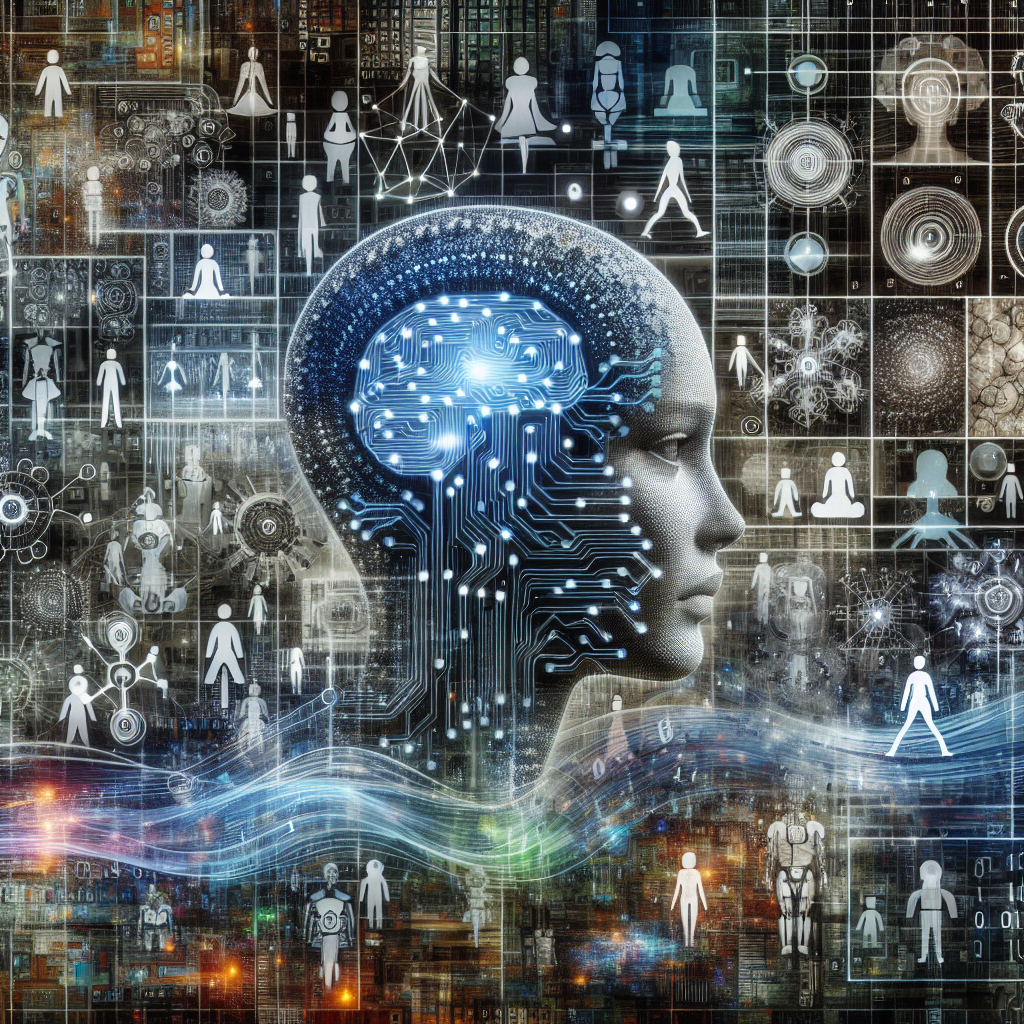Analyzing the AI Tsunami: A Dive into the Latest Developments
The tech world is in the throes of an artificial intelligence renaissance, with leading industry players unveiling innovations that are reshaping our interface with digital technology. From Google's Gemini endeavor seeking to outpace OpenAI's ChatGPT, to Meta's embrace of AI in social connectivity, the landscape is ripe with breakthroughs, controversies, and enhancements that are worth discussing in depth.
Google's Gemini: A Star Is Born and Questioned
The buzz in AI-town has been Google's launch of Gemini, a series of models touted to rival OpenAI's GPT-4. Gemini Nano, aimed at mobile applications, and the more robust Gemini Pro have already hit the scene, with mixed reviews. However, it is the promise of Gemini Ultra, with its advanced capabilities showcased impressively in demos, that has everyone's attention.
Despite the excitement, the integrity of Google's presentation came under scrutiny, revealing that their intoxicating demos were not as real-time as they appeared. This revelation, stemming from a TechCrunch exposé, peeled back the curtain on the cinematic magic behind what was perceived as live interaction with the Gemini AI. The disclaimer 'sequences shortened' subtly noted at the beginning of Google's video hinted at the editing involved, raising questions about the true readiness of Gemini Ultra.
Nevertheless, Google's foray into the AI battle signals a fervent race to dominate a market ripe with potential, as AI becomes ubiquitously intertwined with our digital experiences.
Grock: Elon Musk's AI Unveiled
Elon Musk's introduction of Grock to X Premium Plus subscribers adds another layer to the AI narrative. This development, coupled with Musk's reputation for innovation, suggests a bold step towards integrating AI into consumer technology even further. However, Grock's lack of chat history raises user experience questions, as it deviates from the norm established by AI contemporaries that store past interactions. This design choice might lead to a reassessment of what users consider valuable in AI interactions.
OpenAI's Ethical Chip Deal
A notable industry move includes OpenAI's agreement to purchase $51 million in AI chips from RAI, a startup backed by OpenAI's CEO, Sam Altman. This deal shines a light on the ethical entanglements that arise when personal investments intersect with corporate procurement, especially in the tightly knit AI industry.
Time Magazine's Recognition of Sam Altman
Sam Altman's crowning as CEO of the Year by Time Magazine is a testament to his influence in AI circles. His stalwart leadership at OpenAI, especially during times of internal turmoil, reveals the high regard in which he is held by his team. This accolade underscores the importance of charismatic and steadfast leadership in the tumultuous tech industry.
Microsoft's Co-pilot: Ascending to New Heights
Microsoft's Co-pilot is receiving substantial enhancements, absorbing the prowess of OpenAI's GPT-4 Turbo and the new DALL-E 3 model. Features like code interpretation and deep search suggest a concerted effort by Microsoft to solidify its place in the AI-empowered search arena, promising a more intuitive and comprehensive search experience.
The company's 'deep search' innovation epitomizes the potential of AI to interpret human intent, going beyond mere keyword matching to construct a thorough understanding of user queries, thereby refining search outcomes.
Apple's Entry with MLX
Apple's release of the MLX framework signals its entry into the race, with its eyes set on empowering developers to harness the power of its silicon for AI model development. This move may be interpreted as Apple's bid not only to partake in the AI evolution but to mold it within the ecosystem of its devices.
Stability AI's Size-Down Strategy
Stability AI's release of a 60% smaller stable LM Zephyr 3B model indicates a strategic shift towards accessibility, enabling AI to run on less capable machines. While not open-source, its performance in benchmark tests showcases its prowess in the AI modeling domain.
Meta's AI Arsenal
Meta's latest announcement entails a barrage of AI-driven features across its suite of social platforms. The ability to generate and modify images conversationally in Messenger, alongside AI-assisted Facebook post creation, marks a new era of social media interaction. However, such capabilities open discussions on the authenticity of social connections when intermediated by AI.
https://imagine.mea.com
The EMU image generator by Meta also highlights the company's dedication to AI-driven creativity, offering the public a user-friendly platform to conjure up vivid, AI-generated images based on textual prompts.
The AI Video Evolution
AI's penetration into video content has taken a leap with innovations like Pika 1.0, allowing for more dynamic and creative video editing that maintains the integrity of uploaded images. The development of such AI video tools propels us into a future where content creation is not only simplified but significantly empowered by AI capabilities.
Conclusion
In a sea of progress and controversy, the AI news wave continues to swell, with tech giants setting the pace while grappling with ethical, technical, and user experience challenges. As AI becomes more pervasive in our digital lifestyles, the importance of transparency, user-centered design, and ethical considerations will be critical in determining the trajectory of these emerging technologies. The journey is as exhilarating as it is complex, as we navigate through an era that incrementally dissolves the boundaries between human ingenuity and algorithmic prowess.
Related News
- Navigating the Tides of Change: An In-depth Look at AI's Latest Developments
- Exploring the Latest Frontiers in AI: A Comprehensive Analysis
- Unpacking the AI Revolution: A Deep Dive into Recent Developments
- Weekly AI Insights: Major Announcements and Industry Shifts
- The Dynamic Landscape of AI: Drama, Innovations, and Speculations
